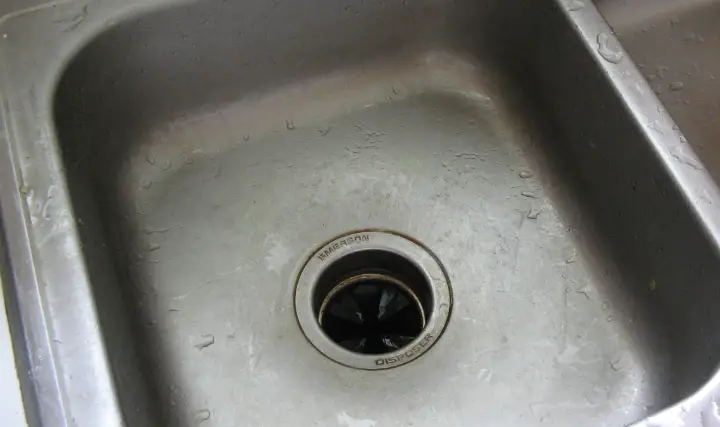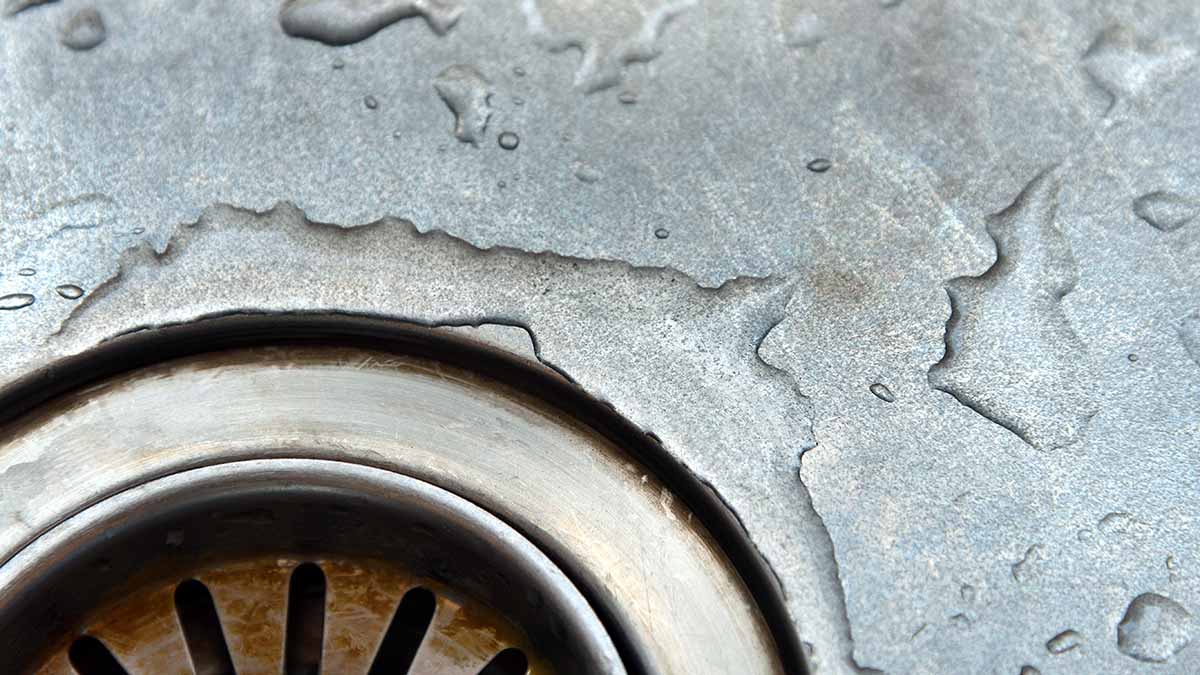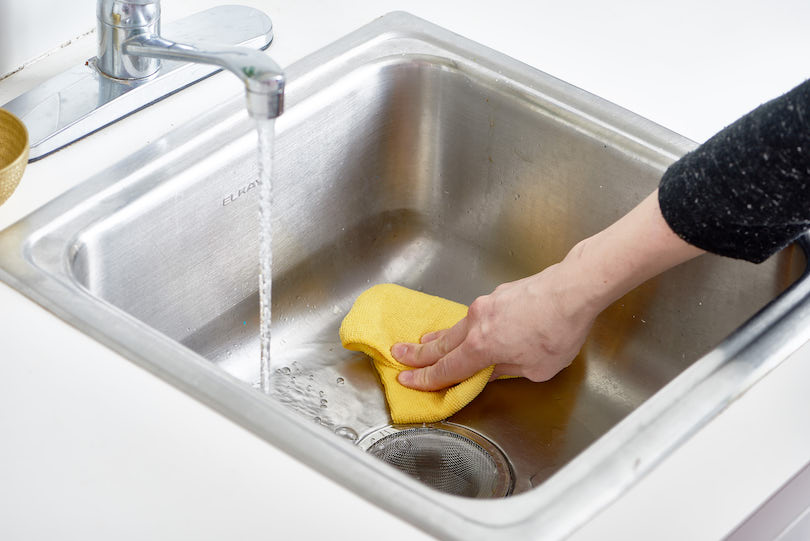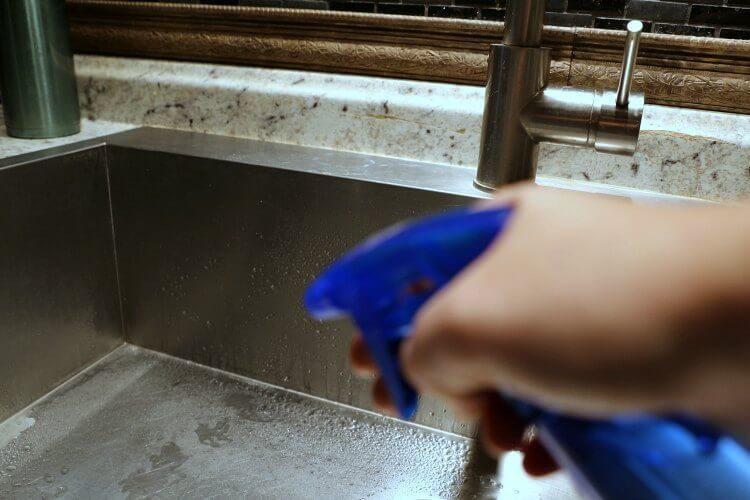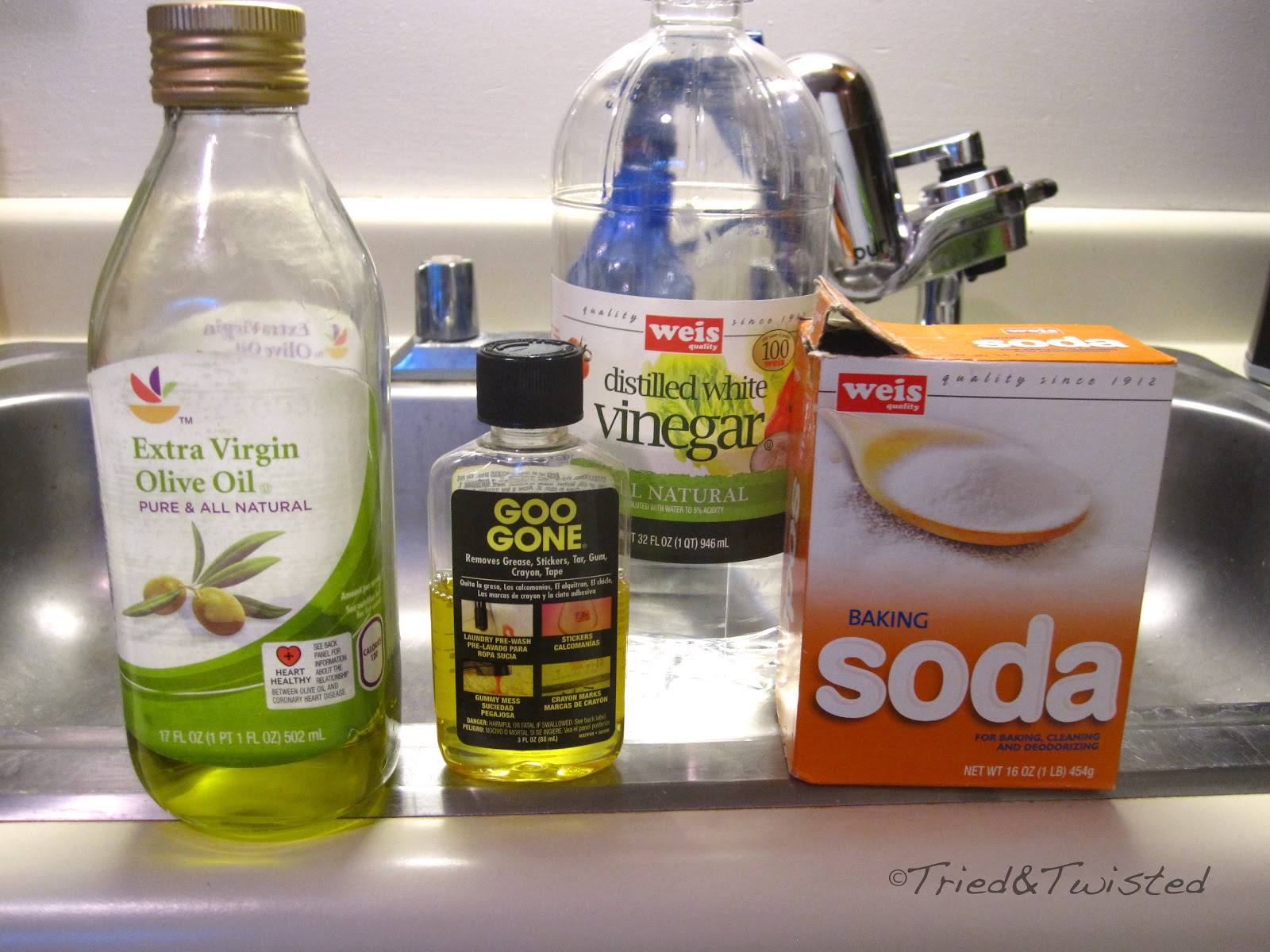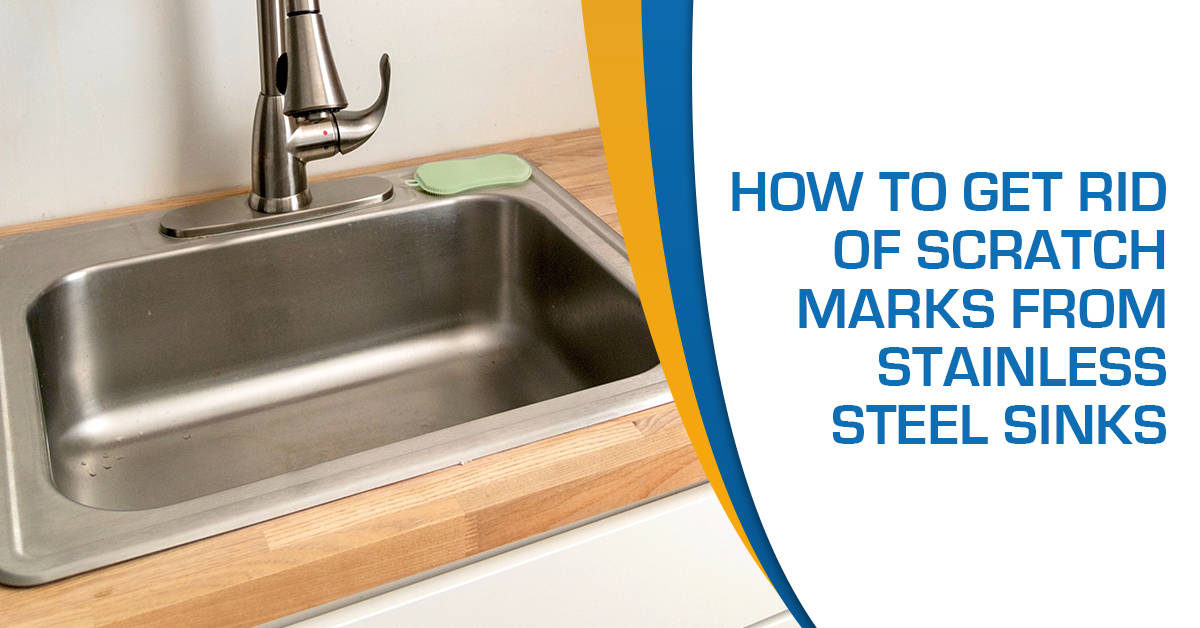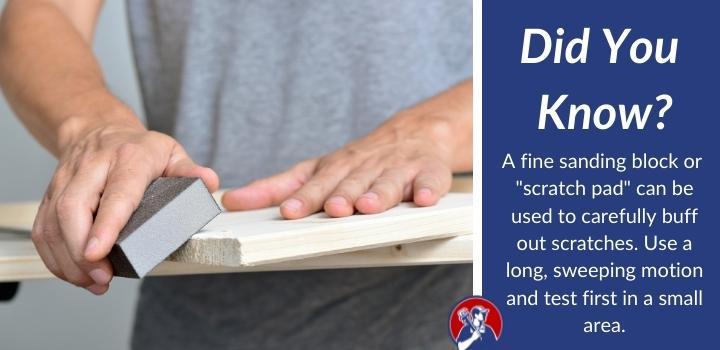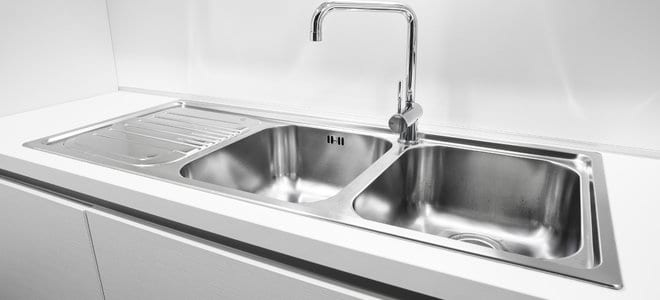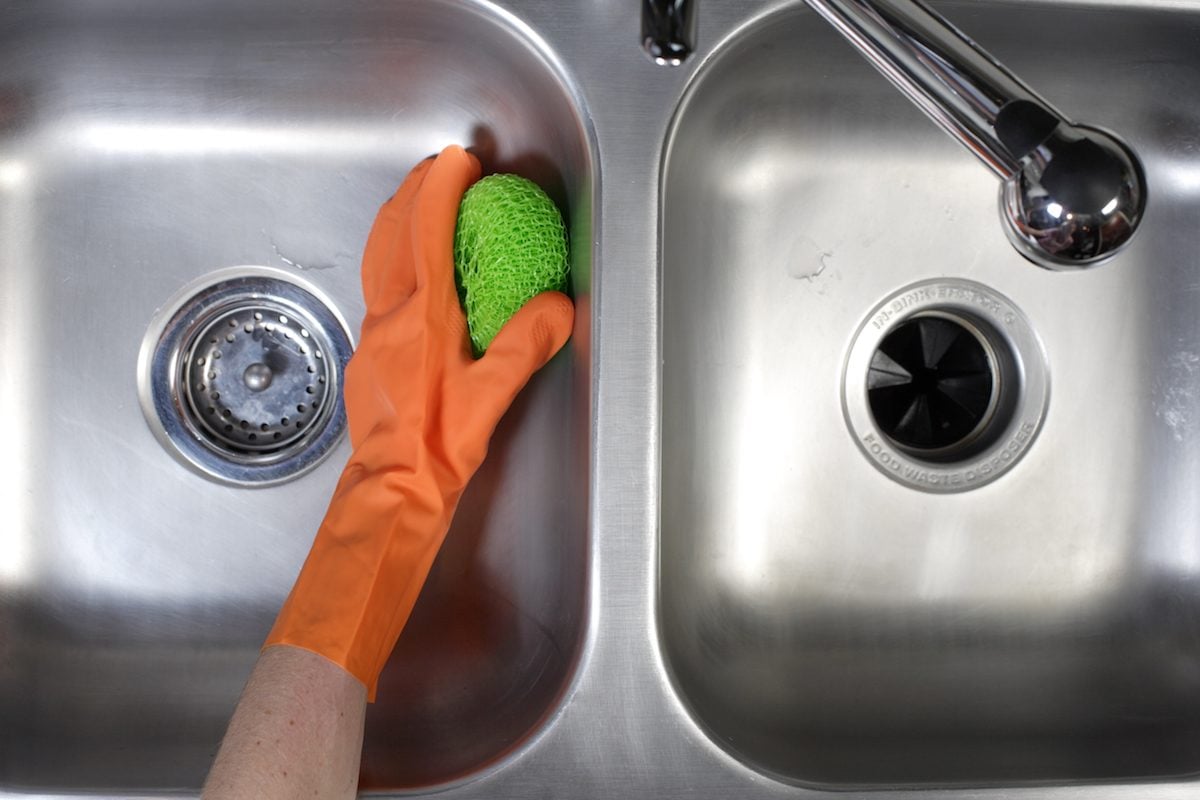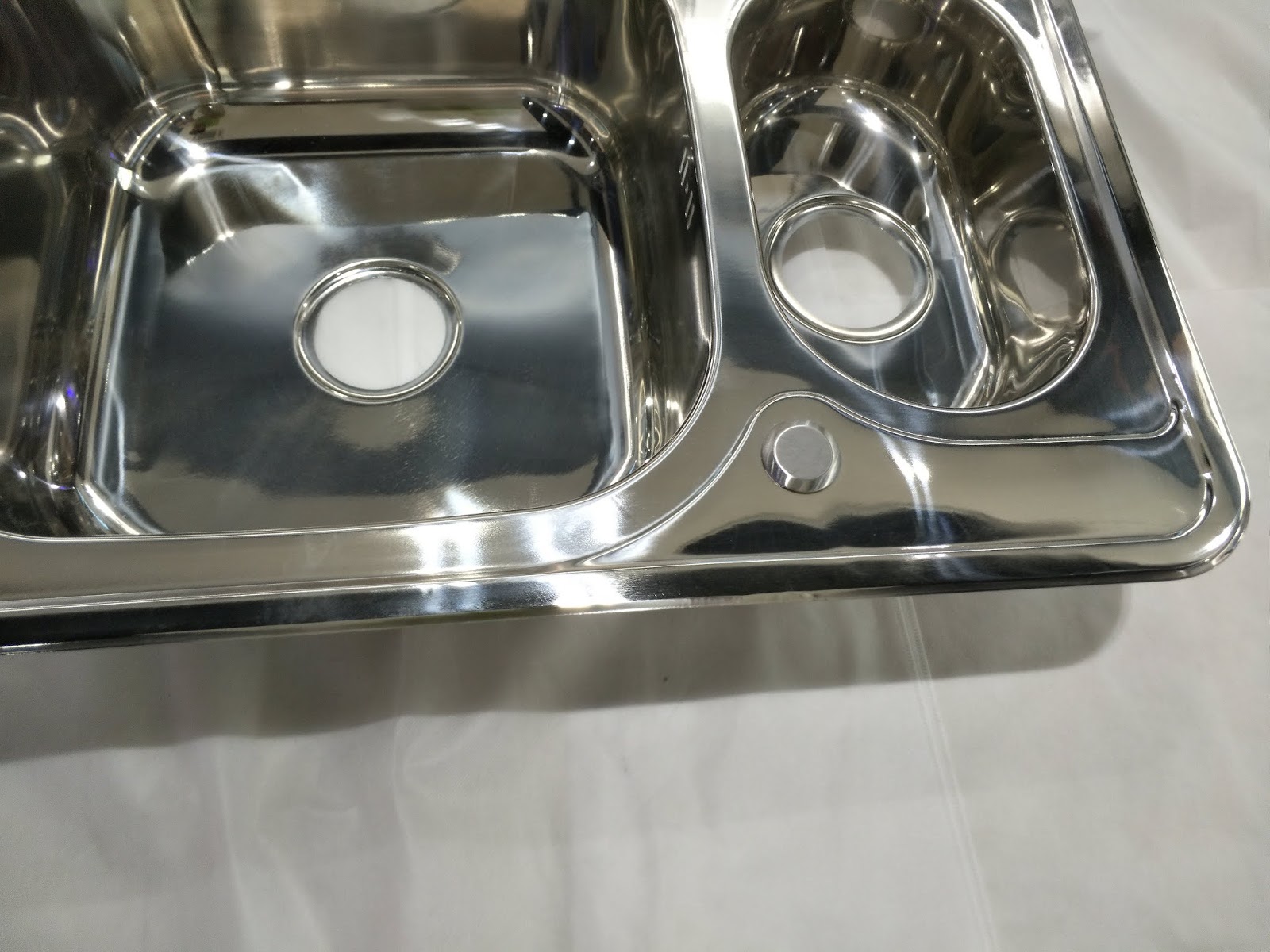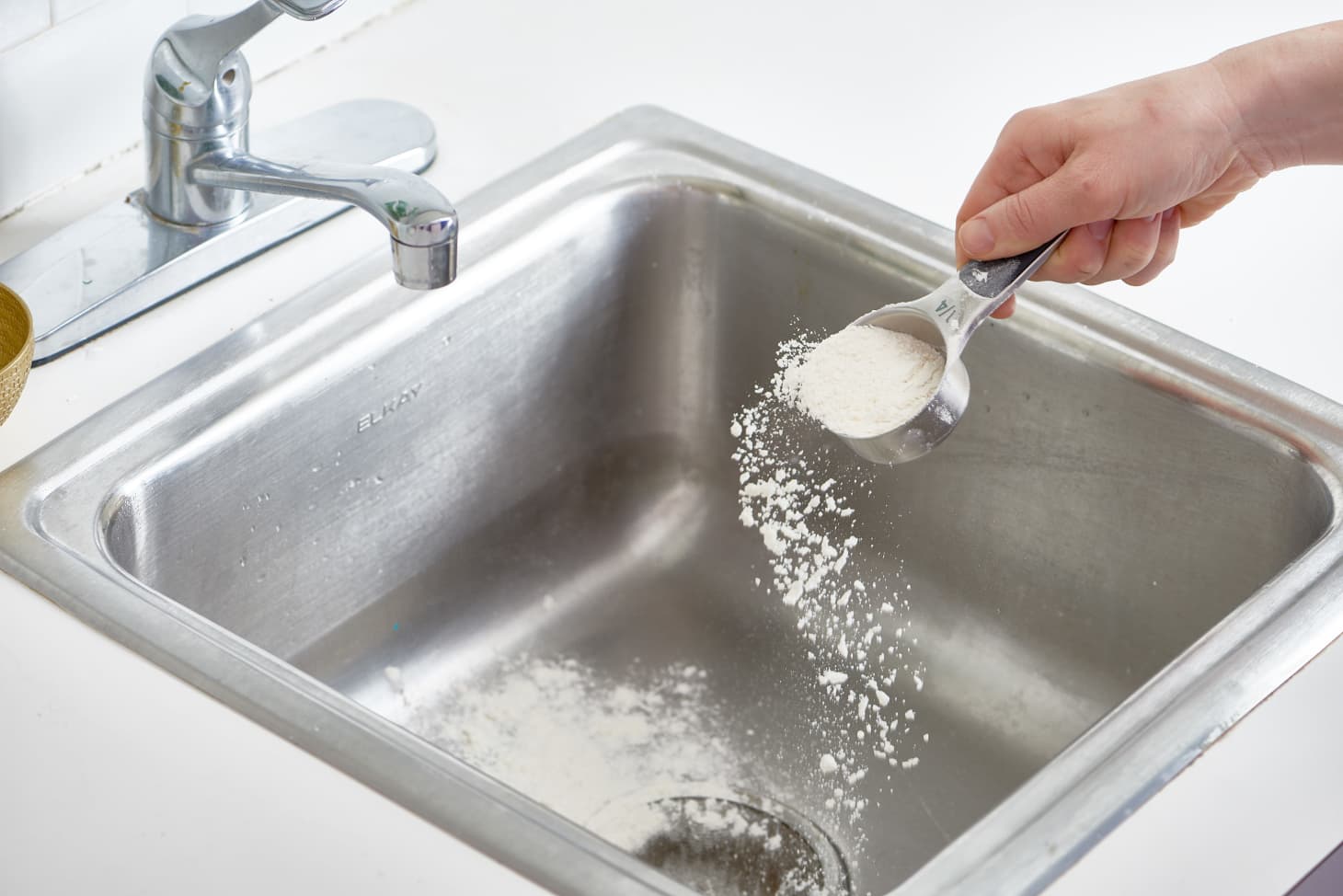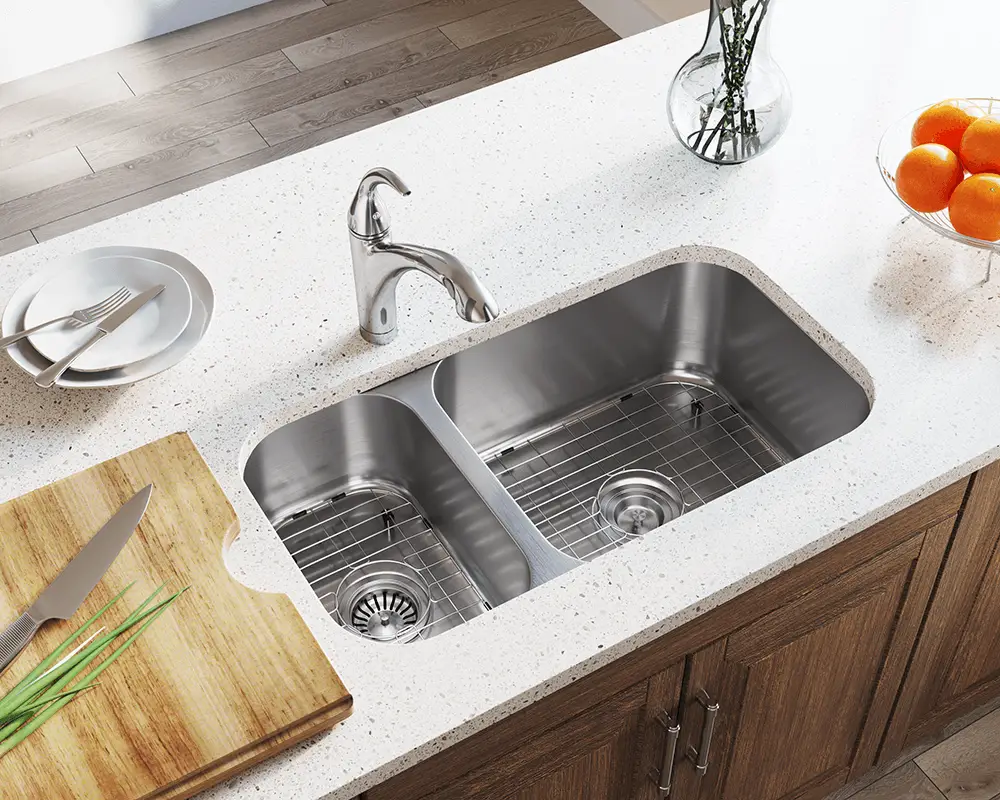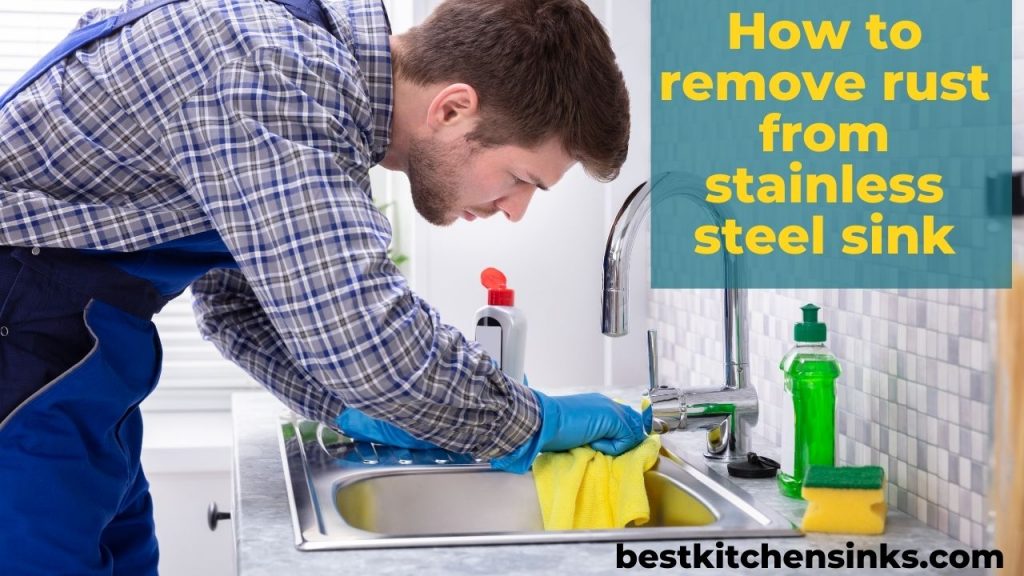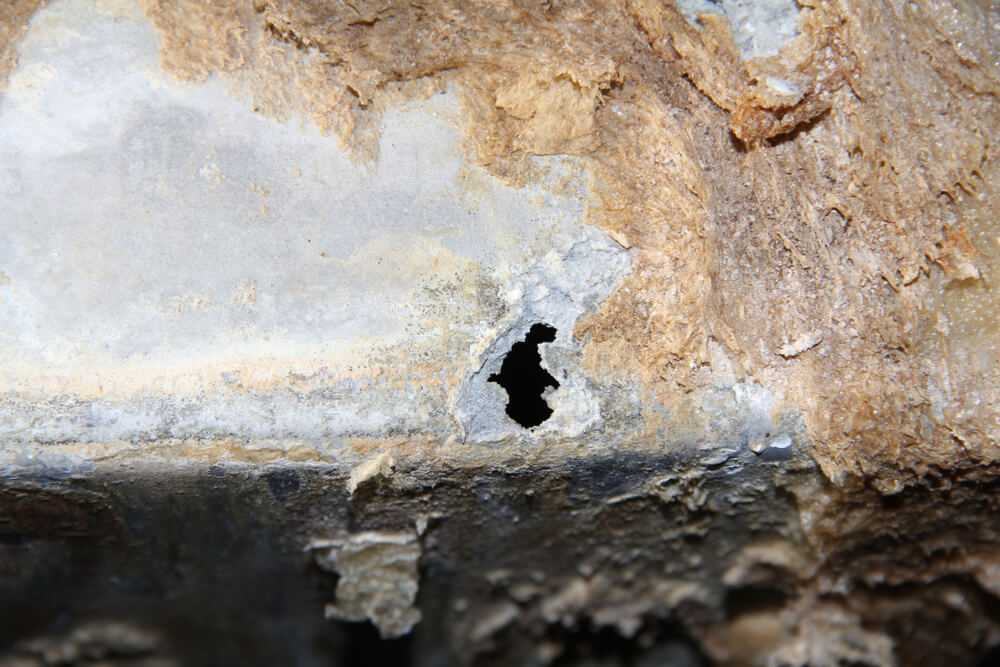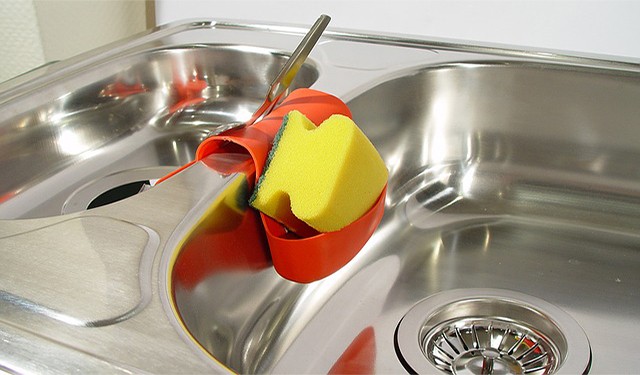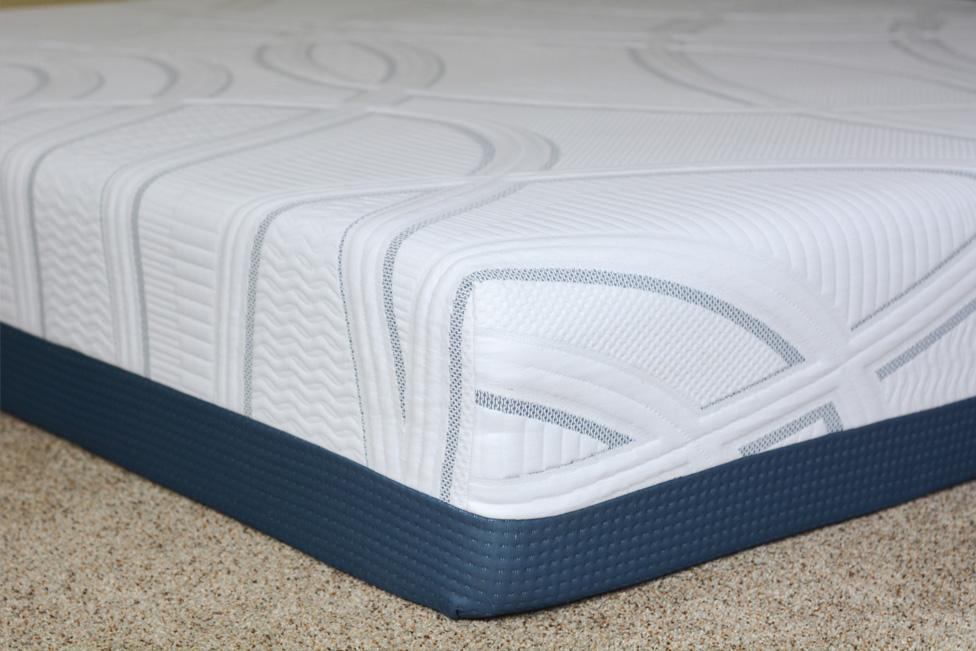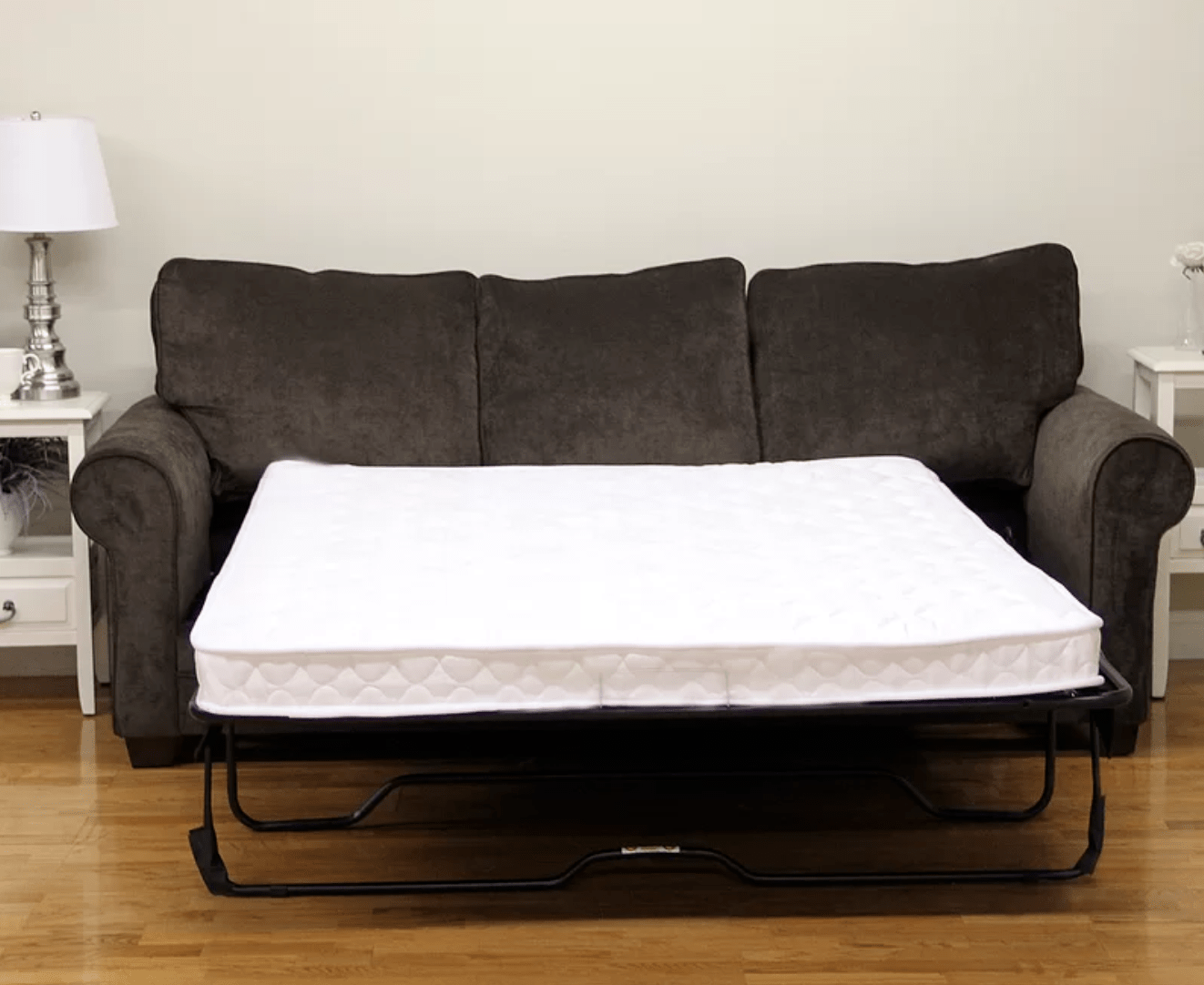Stainless steel sinks are a popular choice for kitchens due to their durability and sleek appearance. However, like any other fixture in your home, they require regular cleaning and maintenance to keep them looking their best. Here are some tips on how to clean a stainless steel sink and keep it sparkling for years to come.How to Clean a Stainless Steel Sink
Caring for your stainless steel sink is essential to maintain its shine and prevent damage. First and foremost, avoid using abrasive cleaners or scrubbers on the sink as they can scratch the surface. Instead, opt for a gentle cleaner specifically designed for stainless steel. You can also make your own cleaner by mixing equal parts of water and baking soda to create a paste. This solution will effectively clean and shine your sink without causing any damage.How to Care for a Stainless Steel Sink
To clean your stainless steel sink, start by rinsing it with warm water and wiping it down with a mild dish soap. Then, use the baking soda paste to gently scrub the sink in a circular motion. Rinse the sink with warm water and dry it with a soft cloth. For tough stains or built-up grime, you can use a commercial stainless steel cleaner and follow the instructions on the label.Best Way to Clean a Stainless Steel Sink
To keep your stainless steel sink looking its best, there are a few maintenance tips you should follow. First, never leave standing water or wet sponges in the sink for extended periods as it can cause discoloration and water spots. Secondly, avoid using steel wool or harsh chemicals on the sink as they can cause scratches and damage the finish. Finally, always use a soft cloth or sponge to clean the sink and dry it thoroughly afterwards to prevent water spots.Stainless Steel Sink Maintenance Tips
If your stainless steel sink has developed stains, don't panic. There are several natural solutions you can try to remove them. For hard water stains, mix equal parts of white vinegar and water in a spray bottle and spray it on the stains. Let it sit for a few minutes before wiping it away with a soft cloth. For more stubborn stains, you can use lemon juice or club soda to cut through the grime and leave your sink looking clean and shiny.How to Remove Stains from a Stainless Steel Sink
If you prefer using natural cleaning solutions, you can make your own stainless steel sink cleaner with just a few ingredients. Mix 1/4 cup of olive oil and 1/4 cup of white vinegar in a spray bottle. Shake well before spraying it onto the sink and use a soft cloth to buff the surface. This mixture will clean and polish your sink, leaving it streak-free and shiny.DIY Stainless Steel Sink Cleaner
To prevent scratches on your stainless steel sink, avoid using metal utensils or pots and pans directly in the sink. Instead, use a plastic or silicone mat to protect the surface. You can also invest in a sink grid or bottom basin rack to add an extra layer of protection and prevent scratches from everyday use. Additionally, regularly cleaning and drying your sink will help maintain its shine and prevent scratches from forming.Protecting Your Stainless Steel Sink from Scratches
If your stainless steel sink has lost its shine, you can easily restore it with a few simple steps. Start by thoroughly cleaning the sink with warm water and a mild dish soap. Then, mix equal parts of baking soda and lemon juice to create a paste. Use a soft cloth to rub the paste onto the sink in a circular motion, paying extra attention to any dull areas. Rinse the sink with warm water and dry it with a soft cloth to reveal a shiny and polished finish.How to Polish a Stainless Steel Sink
If you prefer using natural cleaning solutions in your home, there are several alternatives to commercial stainless steel cleaners. You can use olive oil, club soda, or lemon juice to clean and shine your stainless steel sink. These ingredients are gentle yet effective in removing dirt and grime without causing any damage to the surface. Plus, they are safe for the environment and your family.Natural Cleaning Solutions for Stainless Steel Sinks
Rust can be a common problem on stainless steel sinks, especially if they are not properly maintained. To prevent rust from forming, make sure to regularly clean and dry your sink after use. If you notice any rust spots, you can use a mixture of baking soda and lemon juice to scrub them away. For extra protection, you can also apply a thin layer of mineral oil to your sink to prevent further rusting.Preventing Rust on Your Stainless Steel Sink
Caring for Your Stainless Steel Kitchen Sink
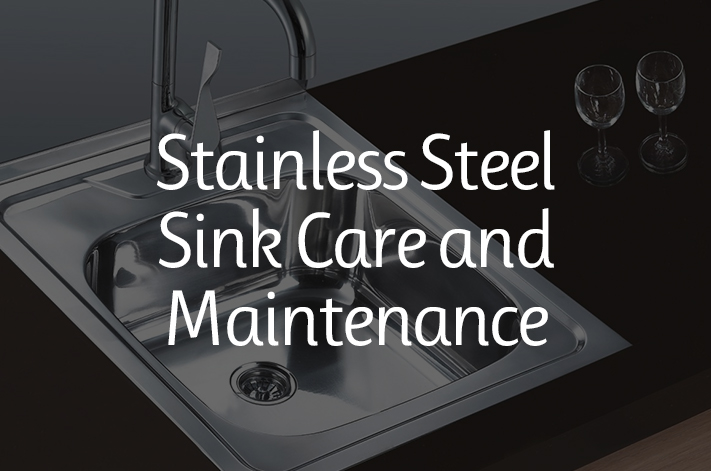
Keep it Clean
 When it comes to maintaining the appearance of your stainless steel kitchen sink, cleanliness is key.
Frequent cleaning and proper care can help prevent scratches and keep your sink looking shiny and new for years to come.
For daily cleaning, simply wipe down the sink with a soft cloth and warm soapy water. Be sure to rinse thoroughly and dry with a clean towel to prevent water spots. For tougher stains or buildup, you can use a mild cleaning solution specifically designed for stainless steel. Avoid using harsh chemicals or abrasive sponges as they can damage the surface of your sink.
When it comes to maintaining the appearance of your stainless steel kitchen sink, cleanliness is key.
Frequent cleaning and proper care can help prevent scratches and keep your sink looking shiny and new for years to come.
For daily cleaning, simply wipe down the sink with a soft cloth and warm soapy water. Be sure to rinse thoroughly and dry with a clean towel to prevent water spots. For tougher stains or buildup, you can use a mild cleaning solution specifically designed for stainless steel. Avoid using harsh chemicals or abrasive sponges as they can damage the surface of your sink.
Prevent Scratches
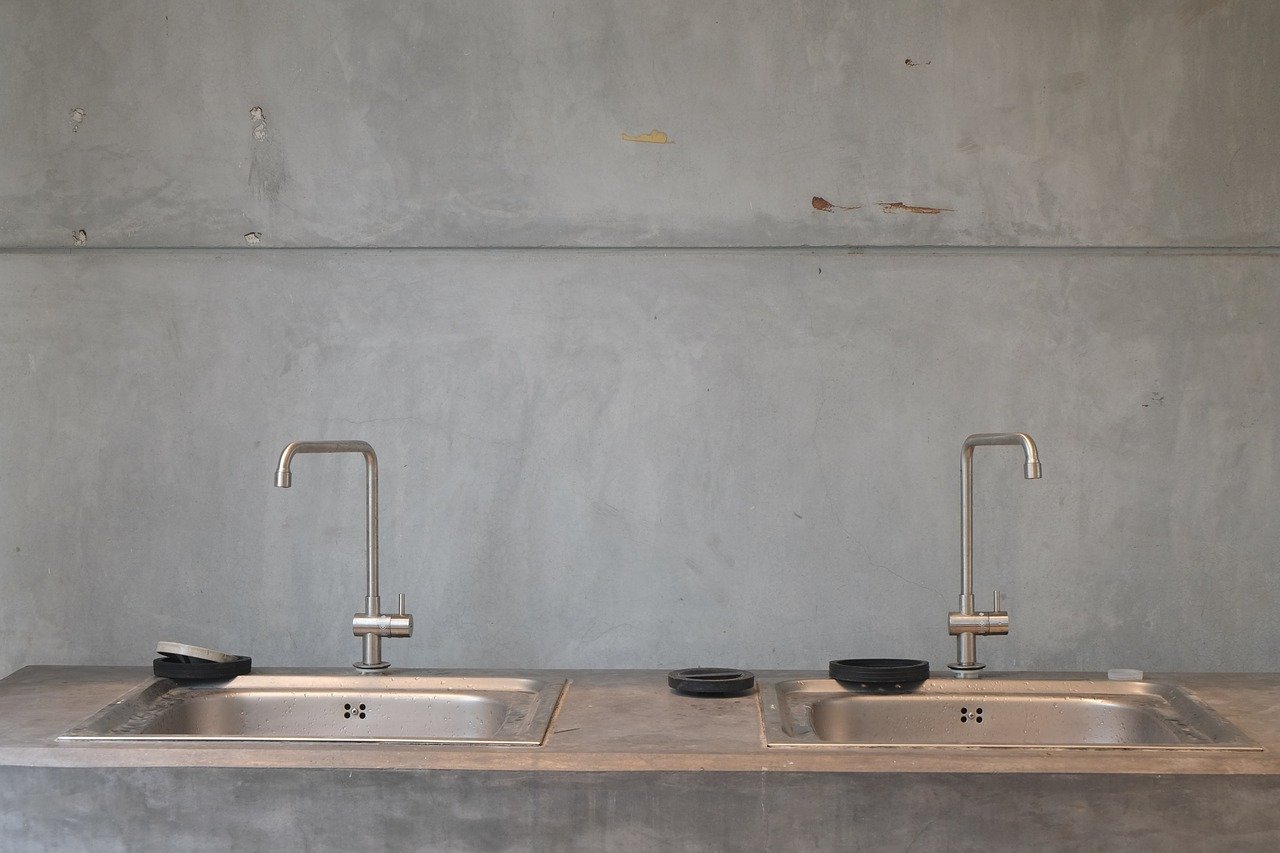 Stainless steel is a durable material, but it is not immune to scratches and dents.
To prevent these types of damages, it is important to be mindful of what you are placing in your sink. Avoid dropping heavy pots and pans or sharp utensils directly onto the surface.
Consider using sink grids or mats to protect the bottom of your sink from scratches and dents from dishes and other items.
Be sure to also avoid using steel wool or abrasive sponges when cleaning your sink, as they can leave scratches behind.
Stainless steel is a durable material, but it is not immune to scratches and dents.
To prevent these types of damages, it is important to be mindful of what you are placing in your sink. Avoid dropping heavy pots and pans or sharp utensils directly onto the surface.
Consider using sink grids or mats to protect the bottom of your sink from scratches and dents from dishes and other items.
Be sure to also avoid using steel wool or abrasive sponges when cleaning your sink, as they can leave scratches behind.
Restore the Shine
 Over time, your stainless steel sink may start to lose its shine. This can be caused by hard water deposits, soap scum, and other residues. To restore the shine, you can use a stainless steel cleaner or make your own solution using equal parts water and white vinegar. Apply the solution to the sink and scrub gently with a soft cloth.
Rinse thoroughly and dry with a clean towel to reveal a shiny, spot-free finish.
You can also use a small amount of mineral oil on a soft cloth to buff the sink and add an extra layer of protection.
Over time, your stainless steel sink may start to lose its shine. This can be caused by hard water deposits, soap scum, and other residues. To restore the shine, you can use a stainless steel cleaner or make your own solution using equal parts water and white vinegar. Apply the solution to the sink and scrub gently with a soft cloth.
Rinse thoroughly and dry with a clean towel to reveal a shiny, spot-free finish.
You can also use a small amount of mineral oil on a soft cloth to buff the sink and add an extra layer of protection.
Prevent Rust and Corrosion
 While stainless steel is resistant to rust and corrosion, it is not completely immune.
To prevent these issues, be sure to promptly clean up any spills or standing water in your sink.
Also, avoid leaving metal objects such as cast iron pans or silverware in the sink for extended periods of time. If you do notice any rust or corrosion on your sink, you can use a solution of baking soda and water to gently scrub the affected area. Rinse and dry thoroughly afterwards.
By following these simple tips, you can keep your stainless steel kitchen sink looking like new for years to come.
Remember to clean regularly, prevent scratches, restore the shine, and prevent rust and corrosion. With proper care, your stainless steel sink can be a shining centerpiece in your kitchen for many years.
While stainless steel is resistant to rust and corrosion, it is not completely immune.
To prevent these issues, be sure to promptly clean up any spills or standing water in your sink.
Also, avoid leaving metal objects such as cast iron pans or silverware in the sink for extended periods of time. If you do notice any rust or corrosion on your sink, you can use a solution of baking soda and water to gently scrub the affected area. Rinse and dry thoroughly afterwards.
By following these simple tips, you can keep your stainless steel kitchen sink looking like new for years to come.
Remember to clean regularly, prevent scratches, restore the shine, and prevent rust and corrosion. With proper care, your stainless steel sink can be a shining centerpiece in your kitchen for many years.
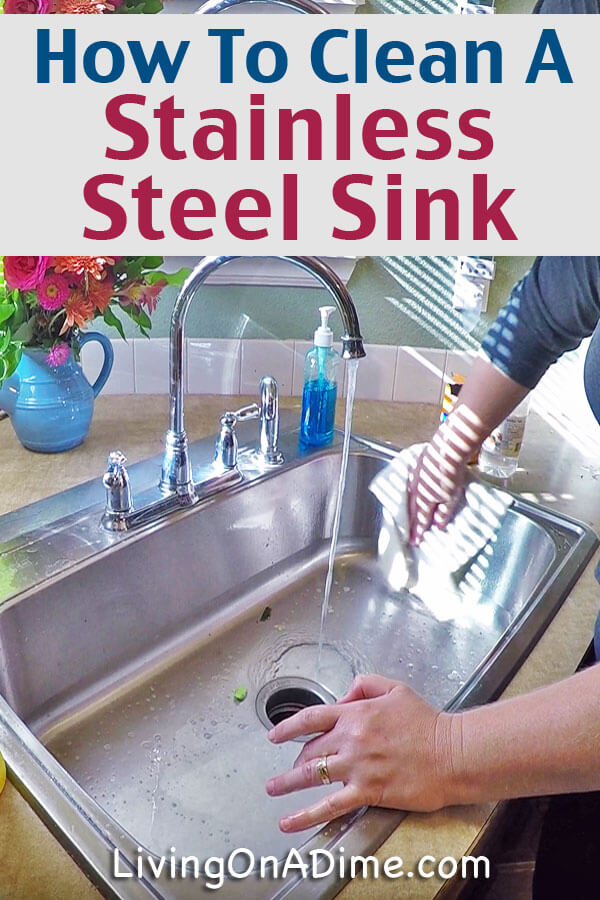
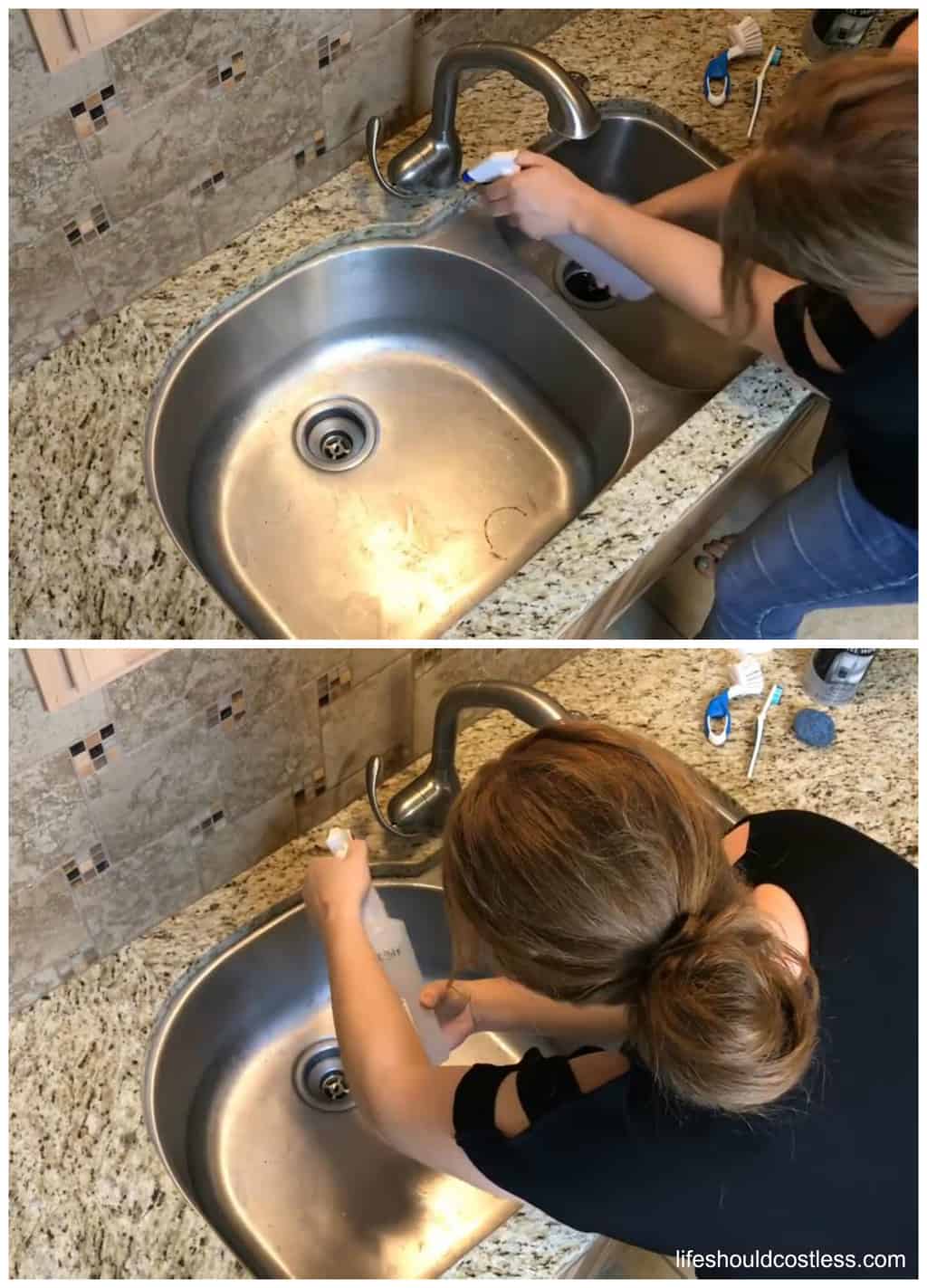


:max_bytes(150000):strip_icc()/how-to-clean-a-stainless-steel-sink-5093605-03-11ec4355990742cf834cada8ad1bf87b.jpg)
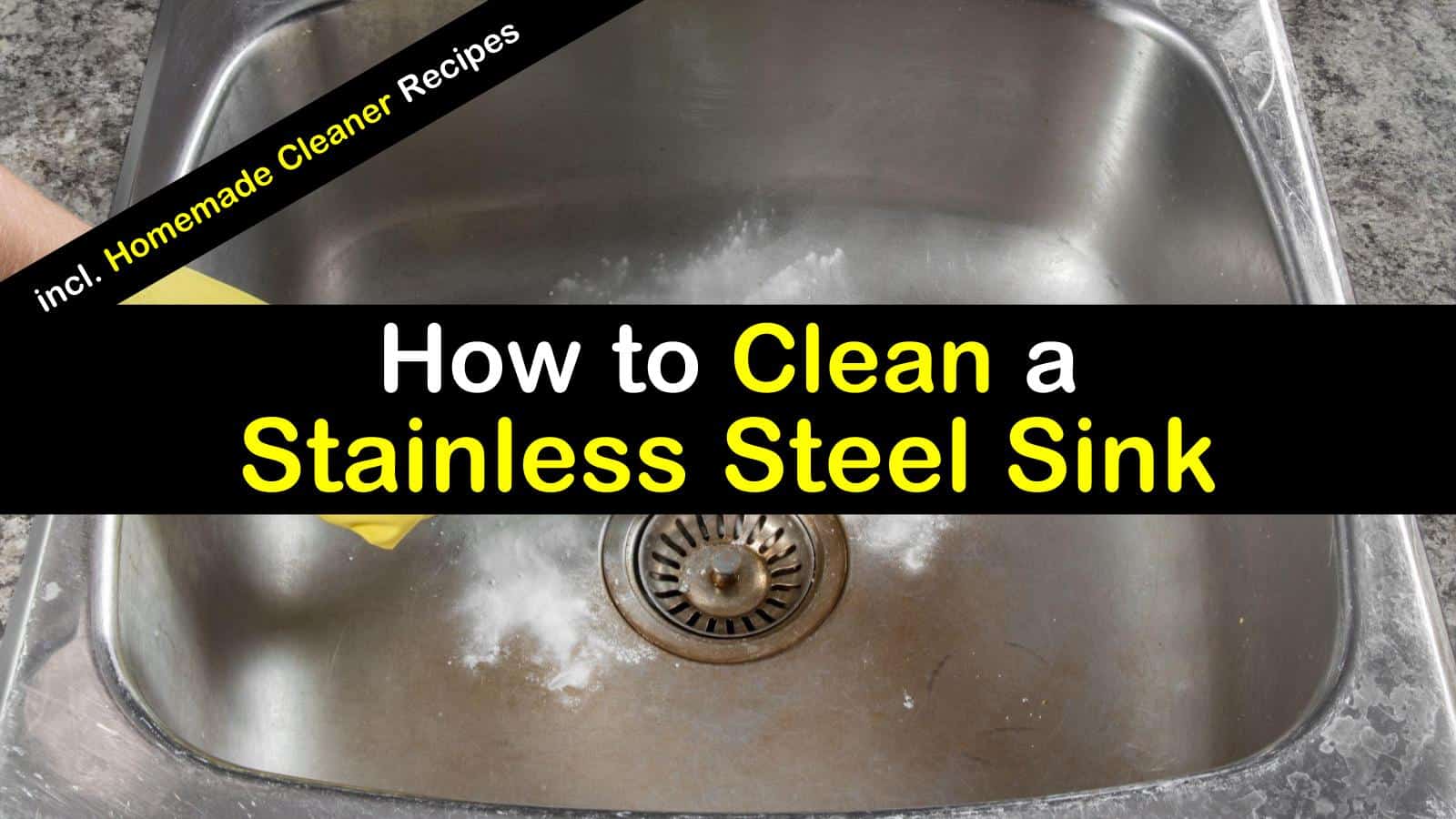
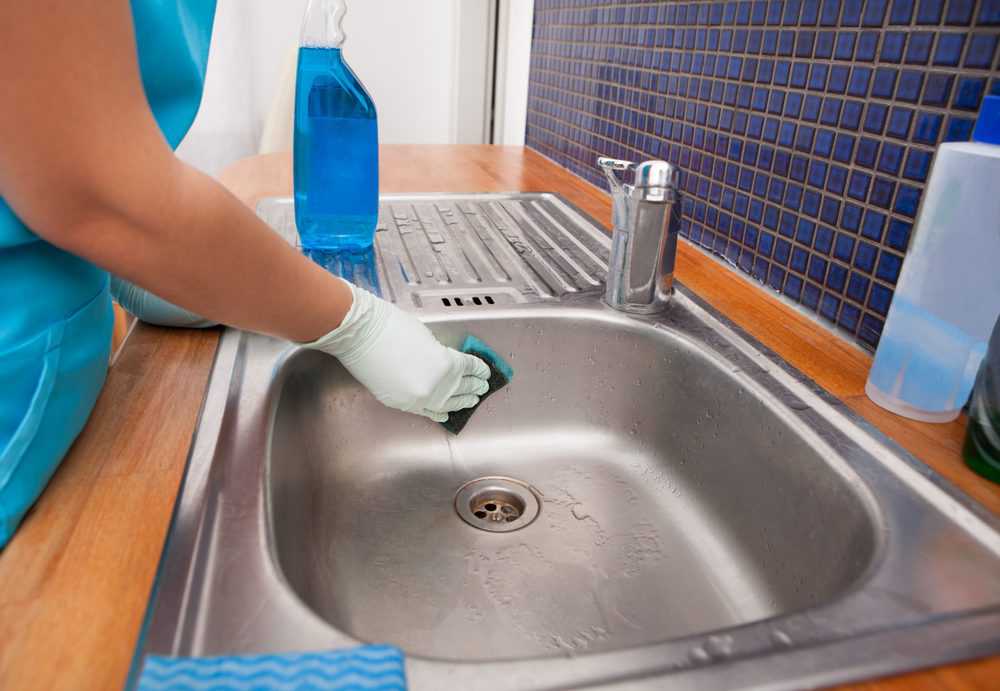
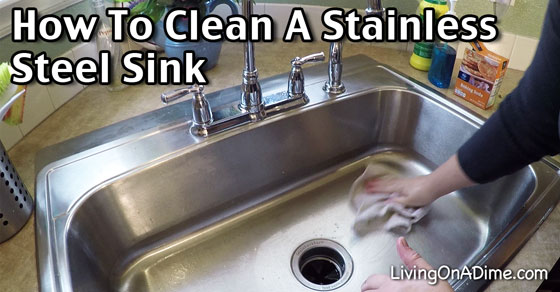


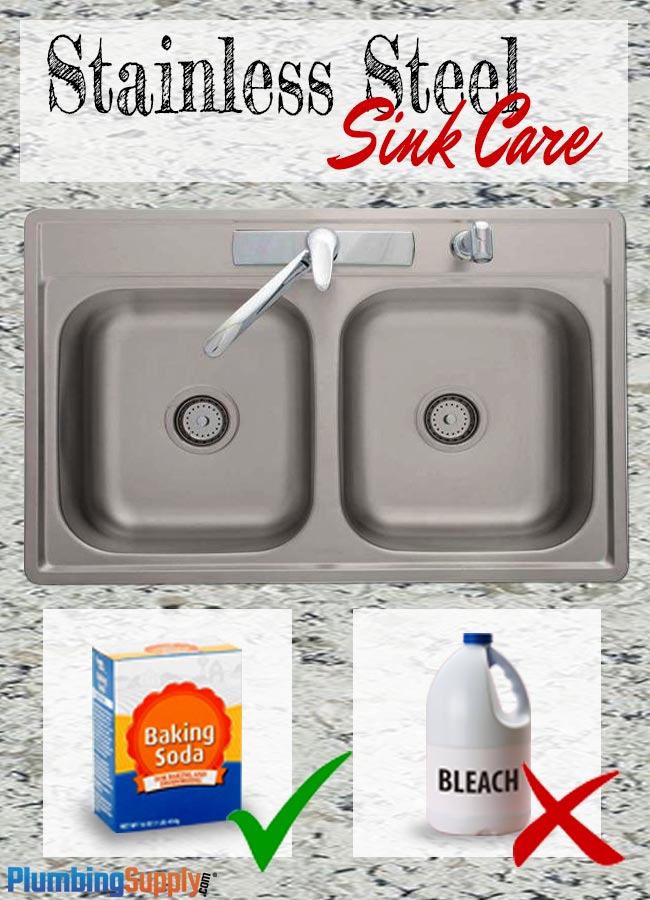
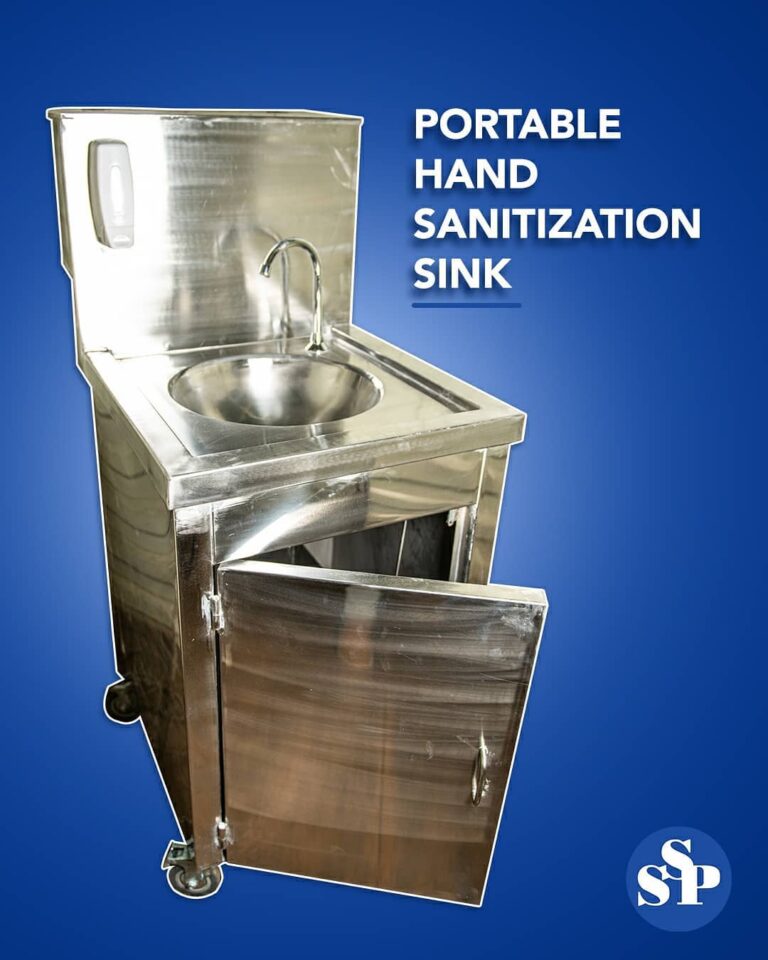

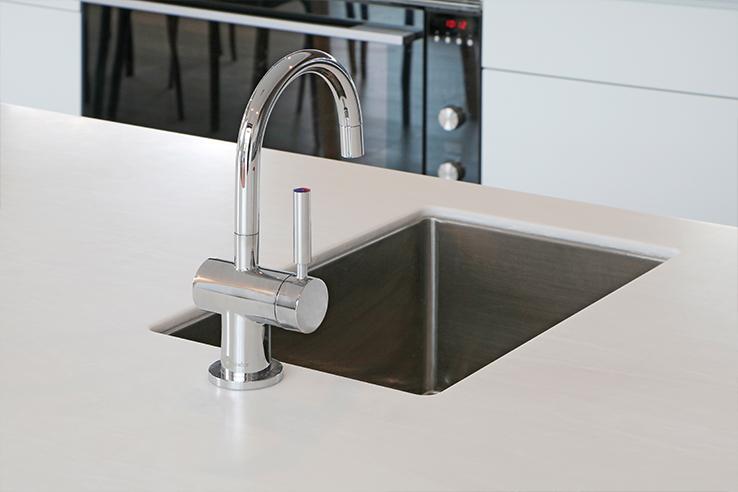
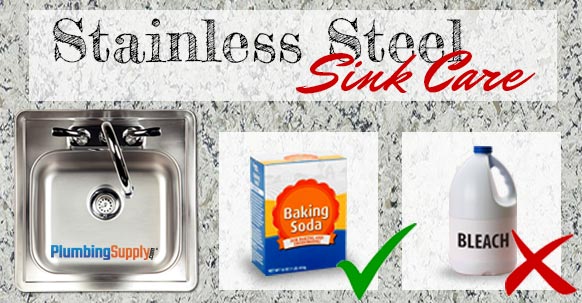


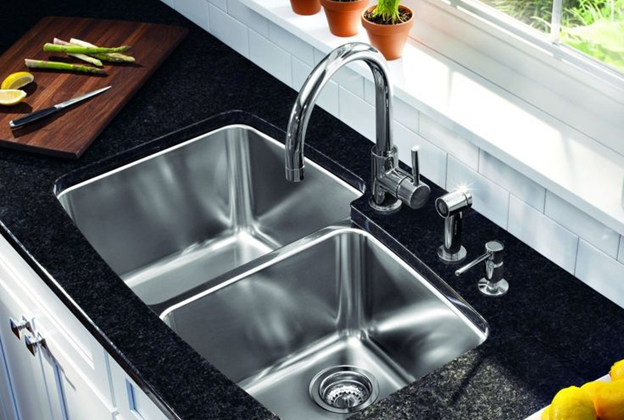

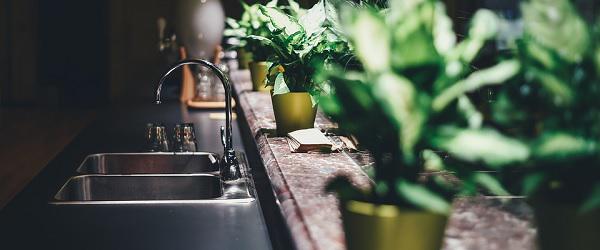



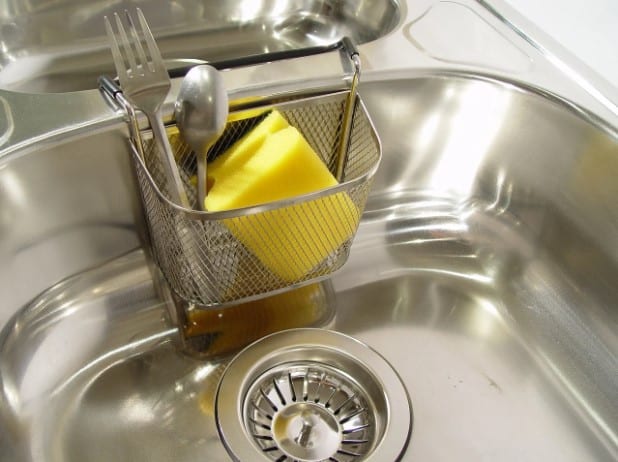

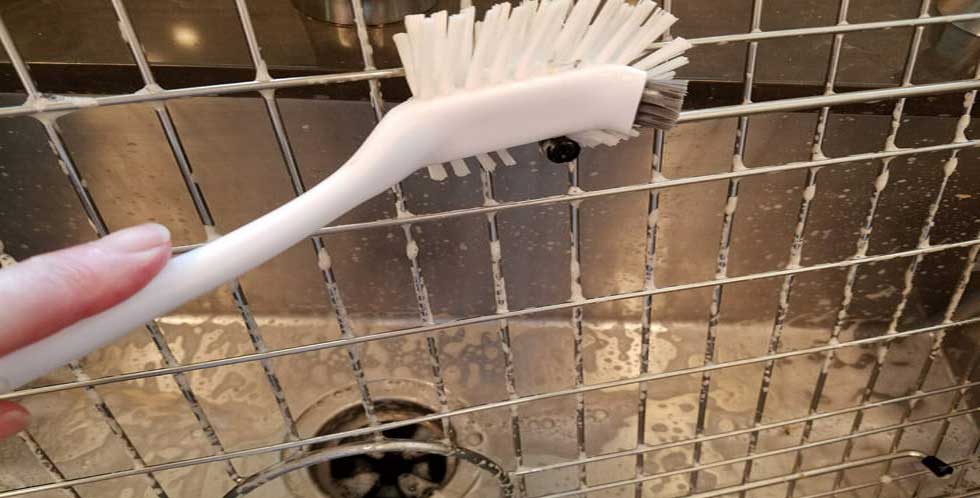
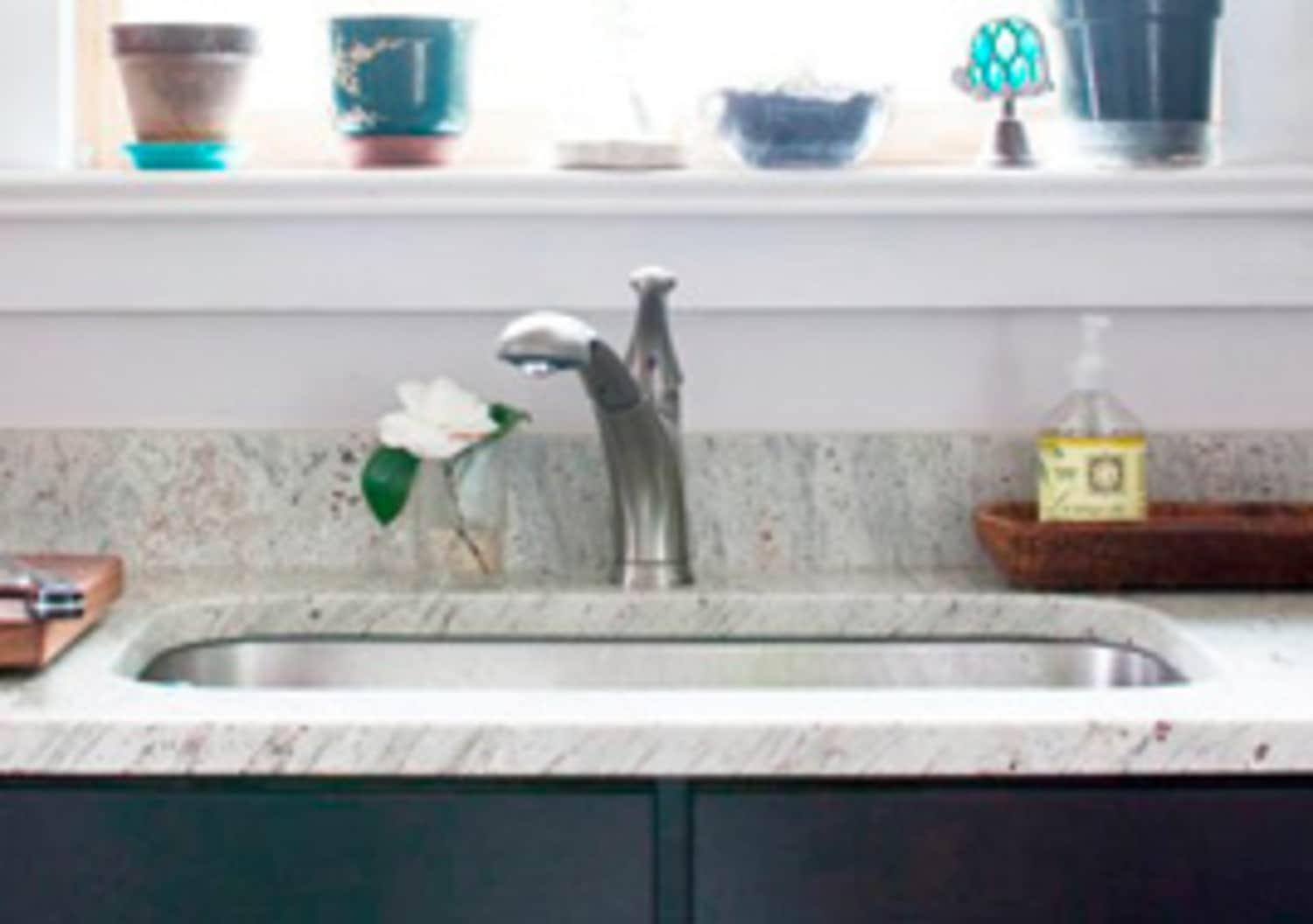

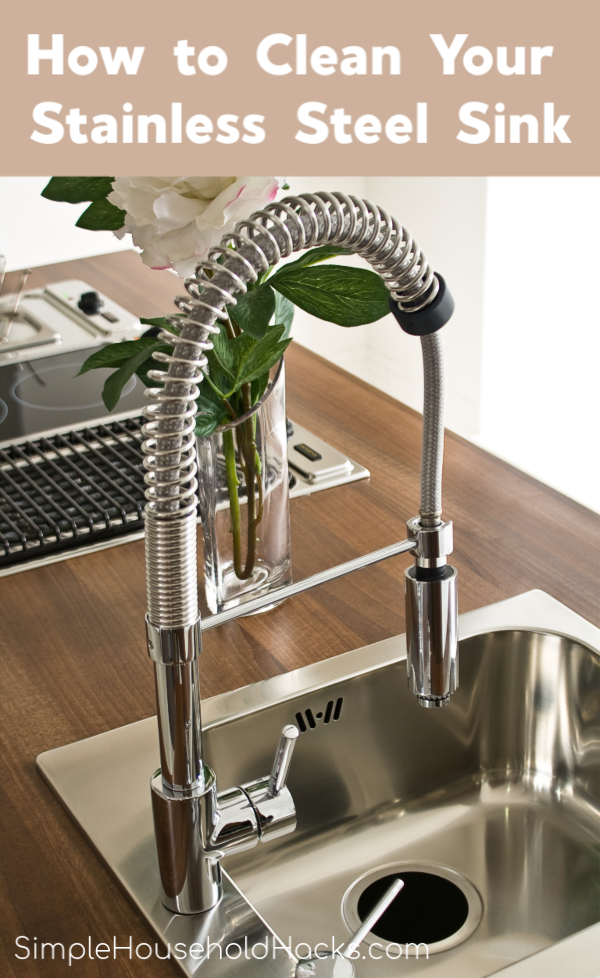


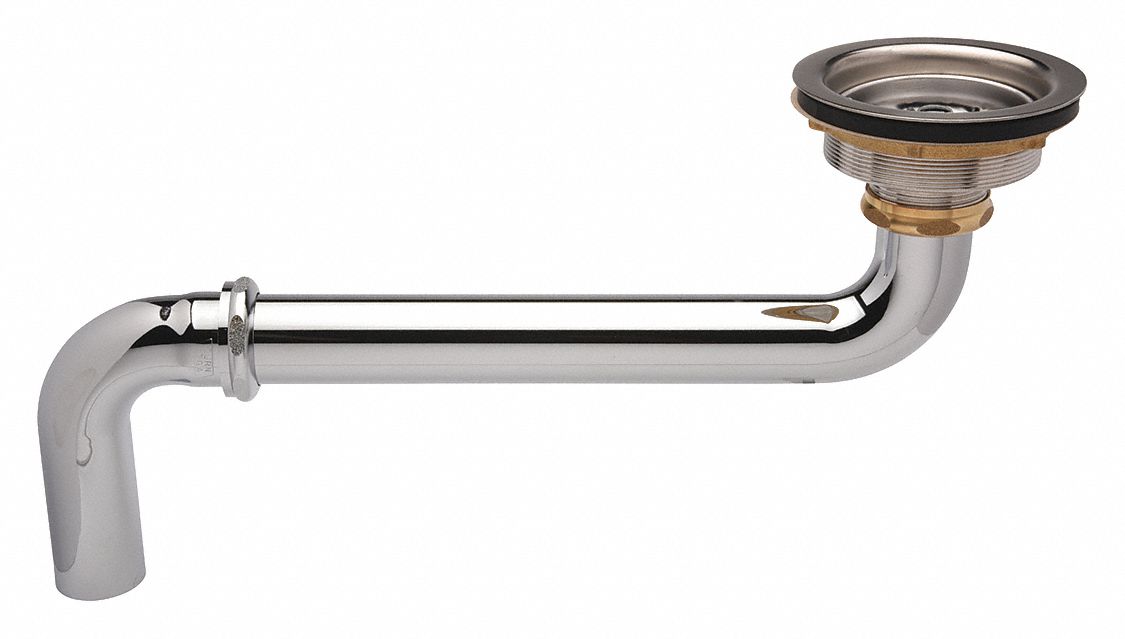

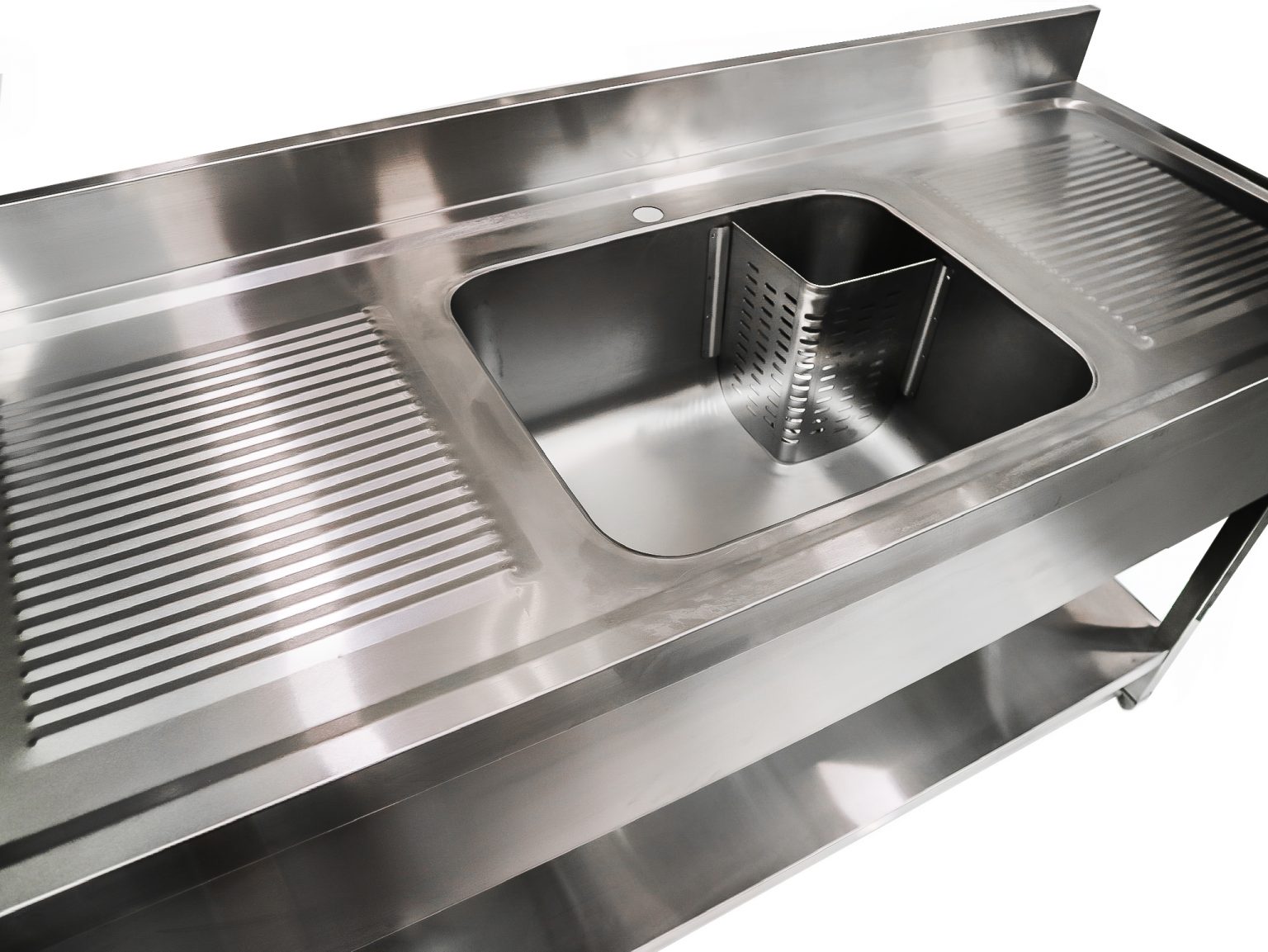



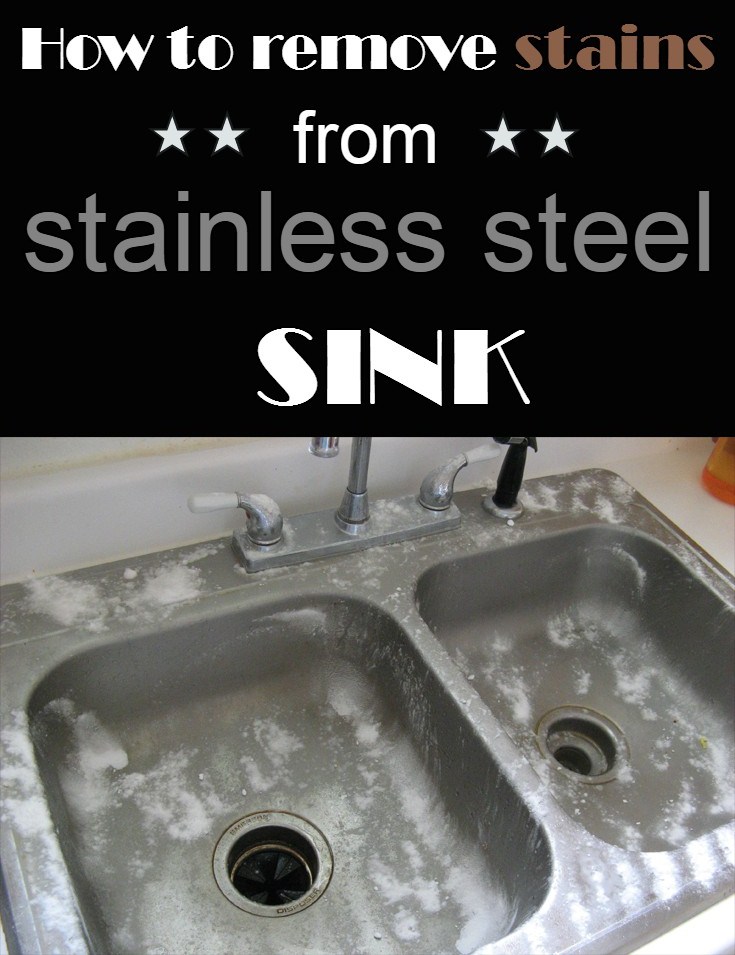


:max_bytes(150000):strip_icc()/remove-brown-stains-from-stainless-steel-1900549_FINAL-5c4761c946e0fb0001d54367.png)


